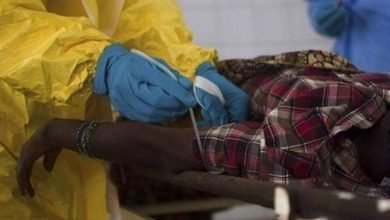Lassa fever: the deadly disease that is spreading rapidly and for which there is no vaccine
Hello Steemit! Since the beginning of the year, Nigeria has been affected by a deadly outbreak: Lassa fever, one of a series of diseases that can cause dangerous epidemics, but for which there is no vaccine at present.

Lassa fever: the deadly disease that is spreading rapidly:
The disease known as "viral hemorrhagic fever" can affect many organs and damage the blood vessels of the body. But it is difficult to deal with and to detect.
Most people who get the disease show only mild symptoms, such as fever, headache, and general weakness. It is also possible that you do not have any symptoms.
However, in severe cases, it can simulate another deadly hemorrhagic fever, Ebola, which causes bleeding through the nose, mouth and other parts of the body. One in five cases of this disease represents a serious risk to health, affecting the liver, spleen and kidneys. Several days after the moment of infection, the experimental symptoms such as sore throat, migraine, cough, nausea, vomiting, diarrhea, as well as muscle, chest and abdominal pain.
It is believed that about 1% of cases are fatal, but women who contract the disease at the end of pregnancy have an 80% chance of dying or losing their child.

Uncertain figures:
Since January, more than 1,000 suspected cases of Lasa have been reported throughout Nigeria, according to the country's Center for Disease Control.
It is believed that, so far, about 90 people have died, but the actual figure can be much higher, because it is very difficult to diagnose. In the early stages it is almost impossible to distinguish other common diseases such as malaria and dengue.
Without an available test, the only way to confirm a diagnosis is to analyze a blood sample in one of the few specialized laboratories.
The disease was identified for the first time in the Nigerian city of Lassa in 1969, after an outbreak in a mission hospital.
Since then it has been seen in many West African countries, including Ghana, Mali and Sierra Leone.
However, this is causing particular concern because the number of cases is unusually high for the time of year.
Health officials are working to understand why.

It is transmitted to humans through contact with the African common rat.

The outbreaks can be influenced by climatic conditions, which affect the number of the host of the natural virus: the African common rat. This small mammal is common in West Africa, where it easily finds its way to the homes of its inhabitants.
Most people get Lassa fever through contact with skin contaminated with urine of blood, feces, blood or saliva.
Another possibility that there is talk of a greater epidemic than on other occasions in which the number of cases reflected a greater public awareness.
It is also possible that something in the virus has changed.
http://www.bbc.com/mundo/noticias-43287795